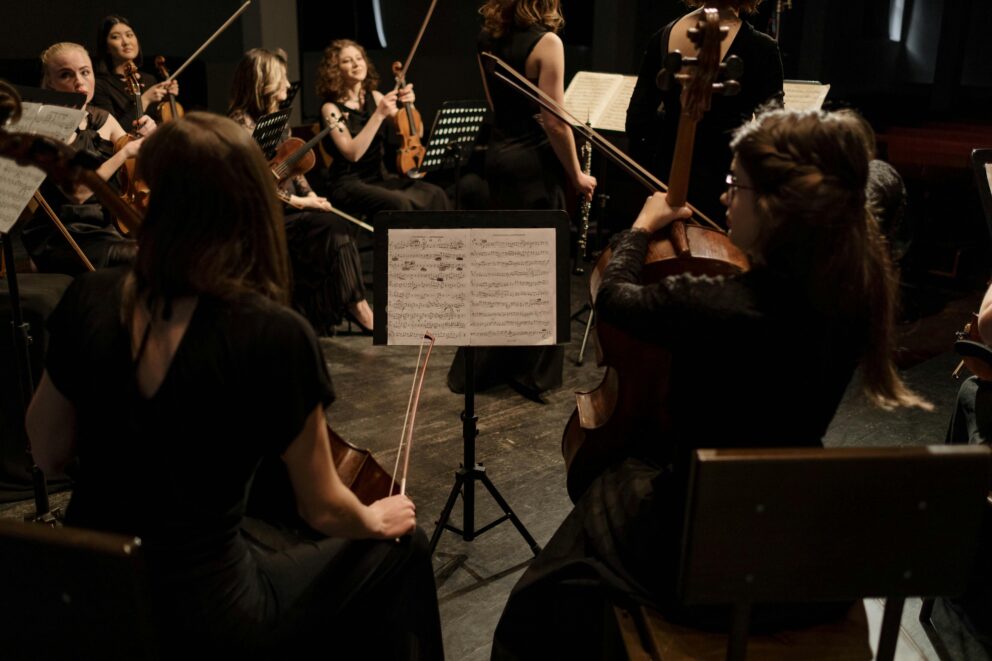Preparing for the Next Wave of Events – Hybrid Events

By Brittany Lieu, Marketing Consultant at Heinz Marketing
The Evolution of Events
With crisis comes creativity, a mantra largely embraced by the B2B events industry in 2020. Last year was the year for virtual experiences. Equipped with its own set of advantages and drawbacks, fully virtual events replaced in-person and on-site conferences, conventions and meetings. However, as the pandemic continues to redefine how organizations reach their audiences and prospects, the new year brings a new wave of events – hybrid events.
So, what’s the buzz with hybrid events and why should you care?
What is a Hybrid Event?
Hybrid events are centered around the attendee experience. According to EventMB’s Virtual Event Tech Guide, 31% of surveyed respondents reported that the biggest challenge in hosting virtual events was matching virtual engagement levels to that of live events. Unlike the standard online event, hybrid events take full advantage of the frictionless experience of operating on a digital platform without compromising attendee engagement.
A marriage of the best of both virtual and live events, a hybrid event is “an event type that will encompass both physical and digital tactics within an event container. Hybrid events allow marketers to scale up or scale down based on safety concerns for themselves, sponsors and audience members” as defined by Cheri Keith from ON24, leaders in optimizing digital experiences and CRM integration.
What does a Hybrid Event Look Like?
Hybrid events can take on a variety of formats to accommodate a remote audience while maximizing engagement. Examples of different hybrid event components include:
- Live broadcast with guest speakers
- On-demand presentations
- Real time Q&A sessions/polling questions
- Customized console/Web-based casting platform
- Virtual Breakout Sessions
- Social Media integration
- Engagement Apps
- Physical Mail-in content
There are so many ways to design a hybrid event that cater to your audience. Here are three practical ways beyond your event content that will leave event-goers eager to attend the next one.
3 Ways to Make the Most of Your Hybrid Event
Leverage the Pre- and Post- Event Experience
Jumpstart the conversation before the conversation has even started. Virtual and hybrid events are not at all limited by the live event times. Build the pre-event hype through email updates or by sharing relevant and valuable resources to help preview and prepare attendees. Sharing teaser content will not only boost some last minute registrations, but can also get attendees primed for participating on the day of the event.
The post-event experience can also be just as important as the initial communication. Don’t hesitate to leverage the full event lifecycle. Connecting with attendees in a personalized email within the 24 hours post-event can be a great way to reiterate the experience they had, offer a simple thank you for their participation, or invite them to a post-event Q&A session.
Design a Dynamic Learning Space
Online events don’t have to be lackluster video presentations. Create a dynamic learning space that encourages event-goers to be active participants. By incorporating different components into the event experience, your organization can deliver more value to an audience of different learning styles. Custom consoles are one way to seamlessly integrate a media player, chatrooms, related content and even a running event itinerary on a single user interface.
Foster Real Time Connection
Generate real time connection with the help of attendees’ second screens – their smartphones. Odds are that a large majority of hybrid event attendees, as savvy as they are with their tech, will be open to engaging with content via their smart devices. Social media and integrated apps are a few ways to create an interactive, two-way conversation throughout each participant’s event journey.
Building in opportunities to dialogue with the audience through Q&A, live polling questions, and small breakout sessions is also crucial to creating immersive experiences.
Put your attendee and prospect customer at the center of your B2B hybrid event strategy and you’ve succeeded in optimizing your efforts. From leveraging the full event lifecycle to building a uniquely dynamic learning space for participants to interact with your brand, there are so many ways to transform your virtual event into a hybrid one.
Aside from its growing popularity prompted by the pandemic, hybrid events may be the answer to an increasingly digital world. As the events landscape continues to shift and competition grows, defining a hybrid event strategy is the first step your brand can take to stay connected with its target audience and prospects.
Want to learn more? Join the conversation!
Interested in hearing what marketing leaders and experts have to say about strategically driving growth with hybrid events?
Tune in to a recorded webinar Activate Your Hybrid Event Strategy: Scale Events for Strong ROI with our very own Matt Heinz (President of Heinz Marketing) and Cheri Keith (Head of Strategy at ON24) where they discuss strategy and practical tips to creating impactful, scalable and engaging hybrid events that maximize ROI.






